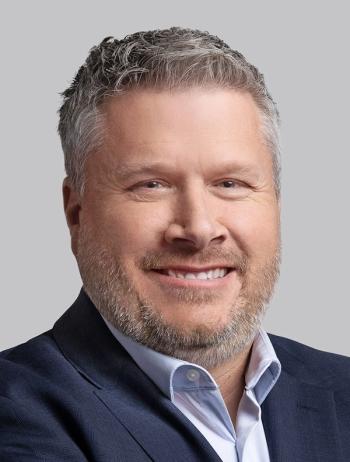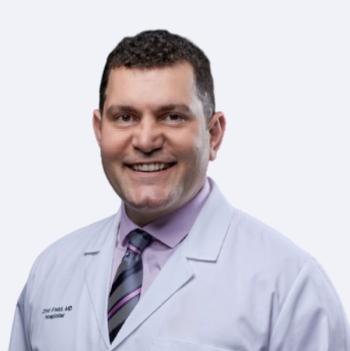
How to make health apps valuable for physicians and patients
Even if physicians aren’t convinced that mobile health (mHealth) apps are worthwhile, many of their patients are.
Few physicians recommend mobile health apps to patients. The main reasons, observers and doctors say, are lack of time, lack of information about which apps are reliable, concerns about liability and insufficient evidence that apps improve health.
A 2015 survey by Manhattan Research estimated that one third of doctors recommended wellness apps to their patients, and half of those physicians simply advised patients to shop in app stores. The proportion of doctors who do so hasn’t changed much in the past few years, says Brian Clancy, a spokesman for IMS Health, which rates apps and provides a mechanism for physicians to recommend them.
HOT TOPIC:
Medhavi Jogi, MD, a Houston endocrinologist, has cut back on his app suggestions. For patient education, Jogi says, “The handout is way cheaper and uses less of my staff time, and I can put the link on my website.”
Other physicians say that mobile apps have benefited some of their patients. For example, Jeffrey Livingston, MD, a Dallas-based OB/GYN, praises a fitness app that he says has helped some patients lose weight. Meanwhile, some healthcare systems and academic medical centers continue to push the use of the technology with their own app stores and, in some cases, internally developed apps.
But even if physicians aren’t convinced that mobile health (mHealth) apps are worthwhile, many of their patients are. Fifty-eight percent of mobile phone users have downloaded at least one mHealth app, and 41% have downloaded more than five apps, according to a 2015 survey by researchers at New York University’s Langone Medical Center. The vast majority of these consumers use the apps to track their exercise and diet, lose weight and/or to learn exercises.
Choosing the right apps
The volume of mHealth apps on the market poses a serious obstacle to any physician who wishes to recommend them, notes Jogi.
According to IMS Health, in 2015 there were 165,000 mHealth apps available in app stores. Over 50% of these apps have a narrow functionality that limits their use in healthcare, and two-thirds of the apps merely provide information about medical conditions. That still leaves tens of thousands of apps for doctors to comb through.
MORE:
Moreover, physicians have little to guide them in their search. There aren’t any good services for rating mHealth apps, says Paul Krebs, Ph.D., an mHealth app researcher, an assistant professor in the division of general internal medicine at NYU School of Medicine and a clinical psychologist at the VA New York Harbor.
Clancy says IMS Health’s reviews are more accurate than those in the app stores or those of other app rating services such as SocialWellth and HealthTap. IMS’ reviews are based on the “actual app rating and recommendation behaviors of thousands of physicians that use our product, as well as the app download and retention behaviors of the patients that have been recommended apps by our users,” he said.
One reason for the lack of mHealth app studies is that developers aren’t required to show that their apps are safe and effective unless they’re applying to the FDA for approval. The FDA requires clearance only for apps that act as a medical device or work with a medical device. Most mHealth apps don’t do either, and the FDA has approved only 219 apps to date, according to a department spokesman.
Krebs, who has studied consumer use of these programs. estimates that fewer than 5% of mHealth apps provide medical advice to consumers, Adam Powell, Ph.D., president of the Payer+Provider Syndicate in Boston and an expert on the adoption of new technology, warns that physicians should be cautious about recommending educational apps, which might be providing information that isn’t evidence-based.
If doctors do recommend an app, it should be one they have used themselves, Krebs says. That’s what both Jogi and Livingston have done; in fact, Livingston uses the fitness app he recommends to patients to manage his own weight.
POPULAR ONLINE:
David Lee Scher, MD, a cardiologist and a digital health consultant in Harrisburg, Pennsylvania, says that most doctors who prescribe apps know about just a few apps and recommend them over and over again. He advises clinicians to pay attention to social media to keep up with newer apps.
Some institutions-including Ochsner Healthcare, Cleveland Clinic and Mount Sinai Health System-vet apps and include them in an app store for patients and/or a library for clinicians. If a hospital or health system does that, Powell says, it gives physicians more confidence that those apps are worth recommending.
Lessons learned
Ashish Atreja, MD, chief innovation and engagement officer and a practicing gastroenterologist at Mount Sinai Medical Center in New York, says some of his patients have benefitted from using mHealth apps.
One patient, who had idiopathic GERD, used an app Atreja had suggested to document her quality of life. “Her GI symptoms were controlled, but her anxiety was through the roof,” he recalls. As a result of using the app, she recognized that her symptoms were related to anxiety, and Atreja referred her to a behavioral health specialist.
Atreja and his colleagues also have recommended apps to help patients track their responses to medications. “For the patients whose GI symptoms are not controlled, we are able to see the pattern, and we are able to more proactively step up the medication, instead of waiting for them to come back in three to six months,” he says.
Scher also has had some success. The apps he most frequently prescribes are related to nutrition and blood pressure tracking. He advises physicians to start with wellness apps, because “it’s a simpler way for people to get involved in their own health.”
Doctors should establish a trust relationship with a patient before asking them to download an app, he adds. “If you don’t establish that relationship and just say ‘use this app,’ it’s like saying, ‘take two aspirins and see me in the morning.’”
FURTHER READING:
Krebs notes that tracking diet or exercise or symptoms with an app “doesn’t necessarily” lead to behavior change. However, as a VA psychologist, he has recommended apps to a few younger patients to help keep track of their thoughts and moods.
Even if a doctor can get patients to download apps, there’s no guarantee that they will use them or stick with them. Krebs has studied the use of a weight-loss app, for example, and found that when patients set their weight-loss goals too high, they tended to drop out of the program. On average, he says, patients kept using the app for 17 days.
“Patients have to desire to self-manage,” Scher notes. “I’ve had patients monitor their blood pressure using an app for up to two weeks, and I get a 100% response rate. You have to start small and keep patients engaged. Ninety-five percent of apps that are downloaded are never looked at or used only once. So you have to start with something that will keep patients coming back. ”
Receiving mHealth data
Wellness and fitness apps are intended to help patients manage their own health. Although they may share some data on their exercise or weight loss efforts with doctors during visits, the apps aren’t typically designed to keep physicians informed on how many steps patients have taken each day or their daily calorie count.
In contrast, some apps for people with chronic diseases such as diabetes and hypertension are specifically designed to send data to their physicians.
IN CASE YOU MISSED IT:
Very little of this monitoring data, however, is being transmitted to doctors’ offices, Krebs says. “To sift that data and bring it into an EHR, you need infrastructure too big for a small provider,” he explains. “In a big hospital, there’s too much red tape, privacy issues and other barriers.”
Physicians don’t want to look at raw data, so the information needs to be sifted and relevant data points presented in an easy-to-grasp format, Scher says. This requires the use of analytics to make the data actionable.
Also, doctors don’t want to leave their EHR workflow to view the data on a website. So the data has to flow directly into their EHR, Livingston says. “If we could have six weeks of blood pressures in a patient’s real life, doing what they really do over time, and could see that data simply and easily, that would help a primary care doctor manage hypertension,” Livingston notes. “But if that data can’t be pushed and pulled into the EHR simply and easily, it won’t be used.”
Future of app prescribing
Jogi is downbeat about the current state of app recommendations, calling it a fad. “If the apps were more personalized and knew more about the history of the patient and they were connected to other apps like medication reminders, they could make a difference,” he says. “But what’s out there requires so much of the patient. Even the passive data being delivered by the app is useless.”
Livingston, on the other hand, forecasts that despite apps’ current shortcomings, they will be much more widely used five years from now than they are today.
HOT TOPIC:
“We’ve got to solve the issue of data portability and interoperability,” he argues. “And app developers have to focus on whether the data is actionable and usable by the physicians. Until we solve that problem, we’re going to stay in this direct-to-consumer marketing, where apps are marketed to consumers and consumers are using them and may or may not be sharing that data with their physician.”
Newsletter
Stay informed and empowered with Medical Economics enewsletter, delivering expert insights, financial strategies, practice management tips and technology trends — tailored for today’s physicians.






